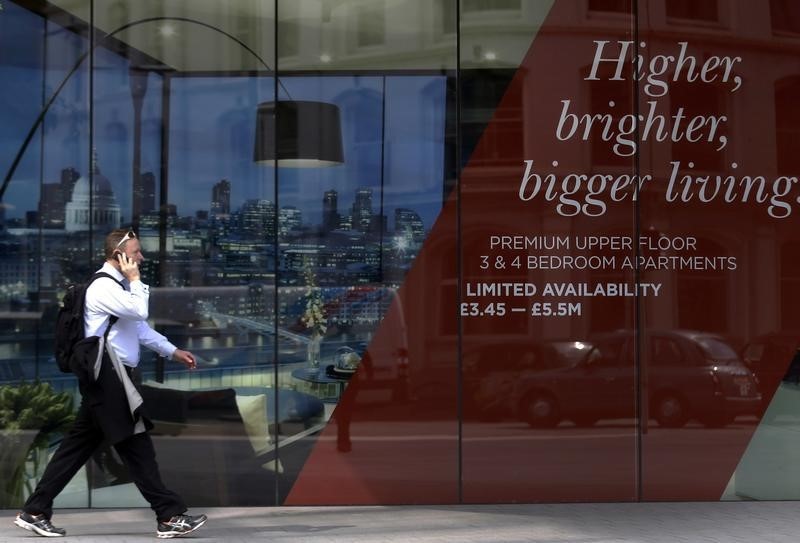By Rahul Karunakar
(Reuters) - British property price rises will slow this year as tighter lending standards limit access to credit and big deposit requirements keep newcomers out of the market, especially in cities like London, a Reuters poll showed.
The results, from a poll of analysts taken over the last few days, come even as expectations rise that the Bank of England will delay raising rates from a record low of 0.5 percent until later in the year or even until 2016.
The latest survey also showed London house prices -- which have sky-rocketed in recent years, often showing annual rises in the double digits -- will slow to just 3 percent this year, below an average expected rate of 4 percent across Britain.
But house prices are still expected to easily outpace British inflation, which fell last month to 0.3 percent, its lowest since records began in 1989, easing a squeeze on consumers just ahead of a national election in May.
Turnover in Britain's housing market dipped a little towards the end of last year in part due to tighter regulation of mortgage lending as well as buyers' concerns that prices were increasing too quickly.
"There are two large opposing influences on the housing market. First, Bank Rate is at a record low, and in our view will stay low for longer than most people currently expect. Second, the housing market is substantially overvalued," said Oliver Jones, economist at Fathom Consulting.
"These two opposing forces largely cancel each other out."
Affordability will be one major driver in keeping a lid on house prices, as the poll concluded the average house price was too high, particularly in London.
The consensus rating for British homes was 6 on a 10-point scale, where one is very undervalued and 10 is very overvalued. In London, the consensus was 9, with four analysts saying 10.
But increasingly the housing market is showing a stark divide between those who already own and those who don't.
"There is a clear distinction to be drawn between the affordability for those with no capital and those with a substantial amount behind them," said Peter Dixon at Commerzbank (XETRA:CBKG).
"The elevated ratios of house prices to incomes suggests that housing is extremely expensive. But for those able to use their capital gains to fund house purchases, low debt servicing costs make housing very affordable."
British finance minister George Osborne recently announced an overhaul to stamp duty system, under which the tax paid will depend more on the price of a property.

(Polling and analysis by Hari Kishan and Sarmista Sen; Editing by Ross Finley and Catherine Evans)